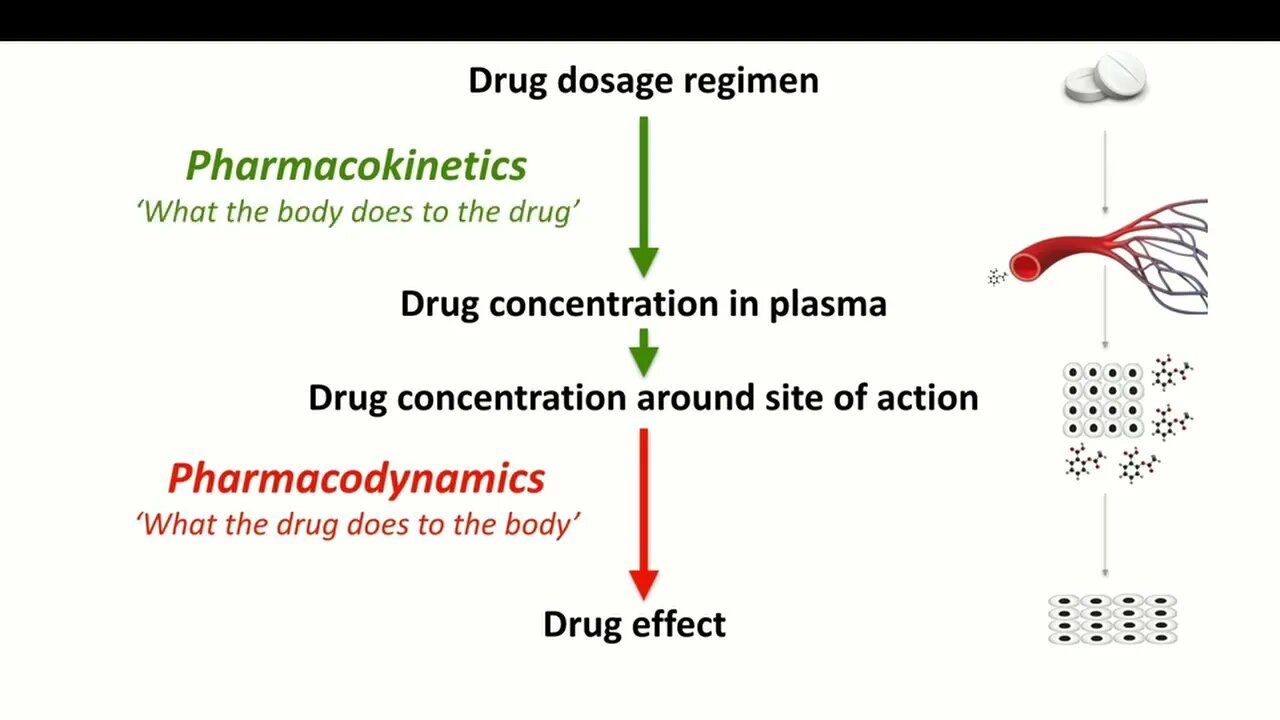Premium Only Content

Pharmacodynamics Mechanism of Drug Action
Pharmacodynamics (PD) is the study of the biochemical and physiologic effects of drugs (especially pharmaceutical drugs). The effects can include those manifested within animals (including humans), microorganisms, or combinations of organisms (for example, infection).
Pharmacodynamics and pharmacokinetics are the main branches of pharmacology, being itself a topic of biology interested in the study of the interactions between both endogenous and exogenous chemical substances with living organisms.
In particular, pharmacodynamics is the study of how a drug affects an organism, whereas pharmacokinetics is the study of how the organism affects the drug. Both together influence dosing, benefit, and adverse effects. Pharmacodynamics is sometimes abbreviated as PD and pharmacokinetics as PK, especially in combined reference (for example, when speaking of PK/PD models).
-
 15:01
15:01
Shea Whitney
20 hours ago $0.55 earned20 *Stylish* AMAZON Closet Organization Ideas for 2025!
4.05K3 -
 16:37
16:37
IsaacButterfield
1 day ago $1.17 earnedFatTok Is Ruining Lives
8.17K17 -
 8:42
8:42
VSOGunChannel
16 hours ago $0.61 earnedDOJ Attacks the Gun Industry & ATF Gets a New Deputy Director
4.6K9 -
 59:47
59:47
Trumpet Daily
20 hours ago $2.83 earnedKilmar Abrego Garcia: Democrat Poster Child and MS-13 Terrorist - Trumpet Daily | Apr. 17, 2025
7.58K2 -
 8:59
8:59
MudandMunitions
17 hours agoThe Savior Equipment Range Bag: Worth the Hype or Overrated?
4.32K -
 3:06:16
3:06:16
Price of Reason
17 hours agoDESPERATE Gavin Newsom SUES Trump! Disney Fantastic Four to FLOP? Asmongold Faces BACKLASH Again!!
138K19 -
 3:48:12
3:48:12
Akademiks
10 hours agoDay 2/30. Drake Challenges UMG and calls them Desperate. Ye Backs Drake. Lil Wayne Dont Fw Superbowl
109K17 -
 8:06:34
8:06:34
MyronGainesX
1 day ago $27.59 earnedKarmelo Anthony Merch, Ashley EXPOSES Elon, Filipino President Punishes Vitaly, Iran War Pause!
86.1K17 -
 2:41:54
2:41:54
TimcastIRL
12 hours agoMASS SHOOTING At Florida State, Anti Trump Rumors ERUPT, MANGIONE EFFECT w/ Maggie Moda| Timcast IRL
242K151 -
 2:36:29
2:36:29
The Illusion of Consensus
1 day agoExploring Holistic Psychiatry with Dr. Aruna Tammala: Nervous System Regulation, Diet, Supplements, Self-love, and Social Connection
46.9K1